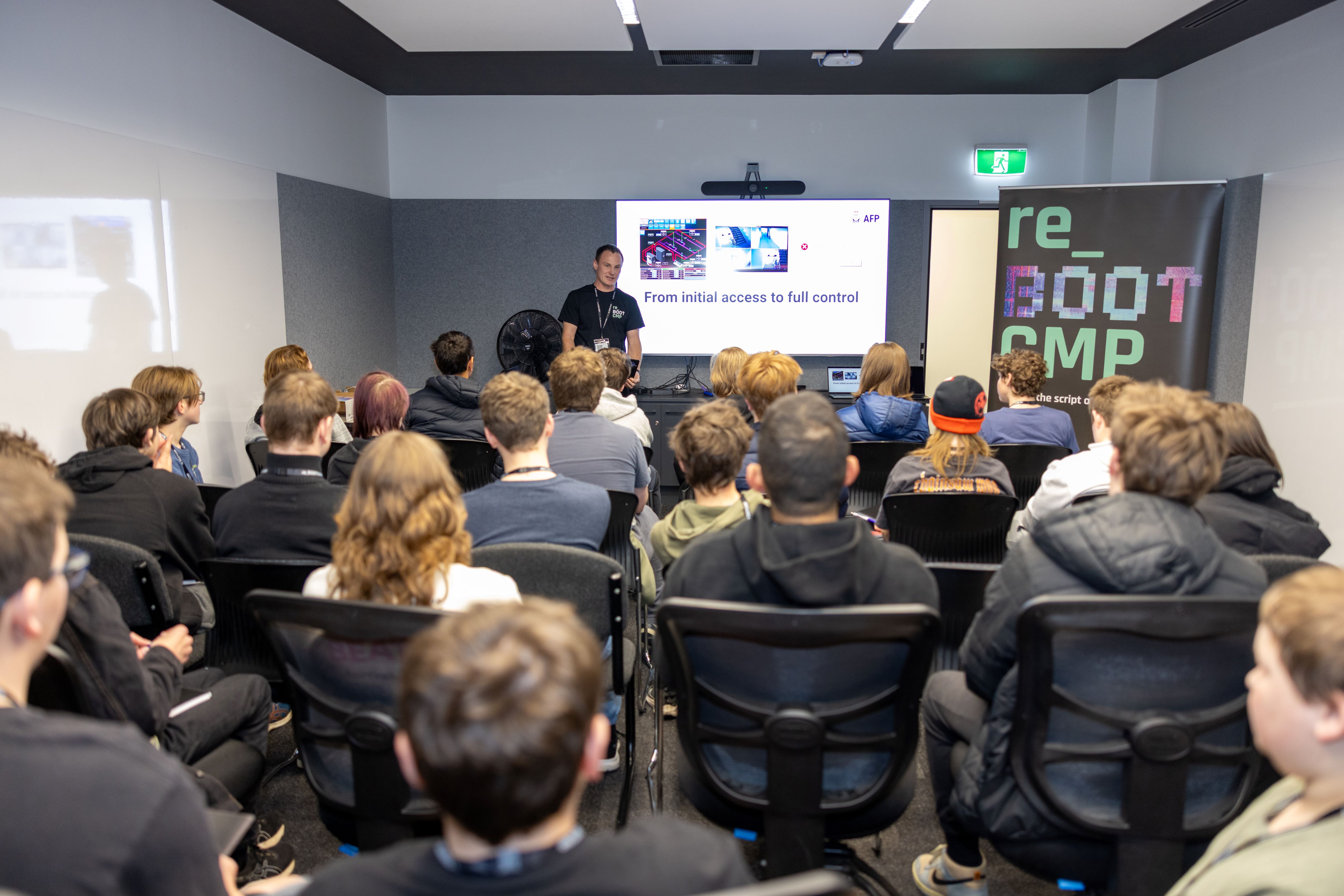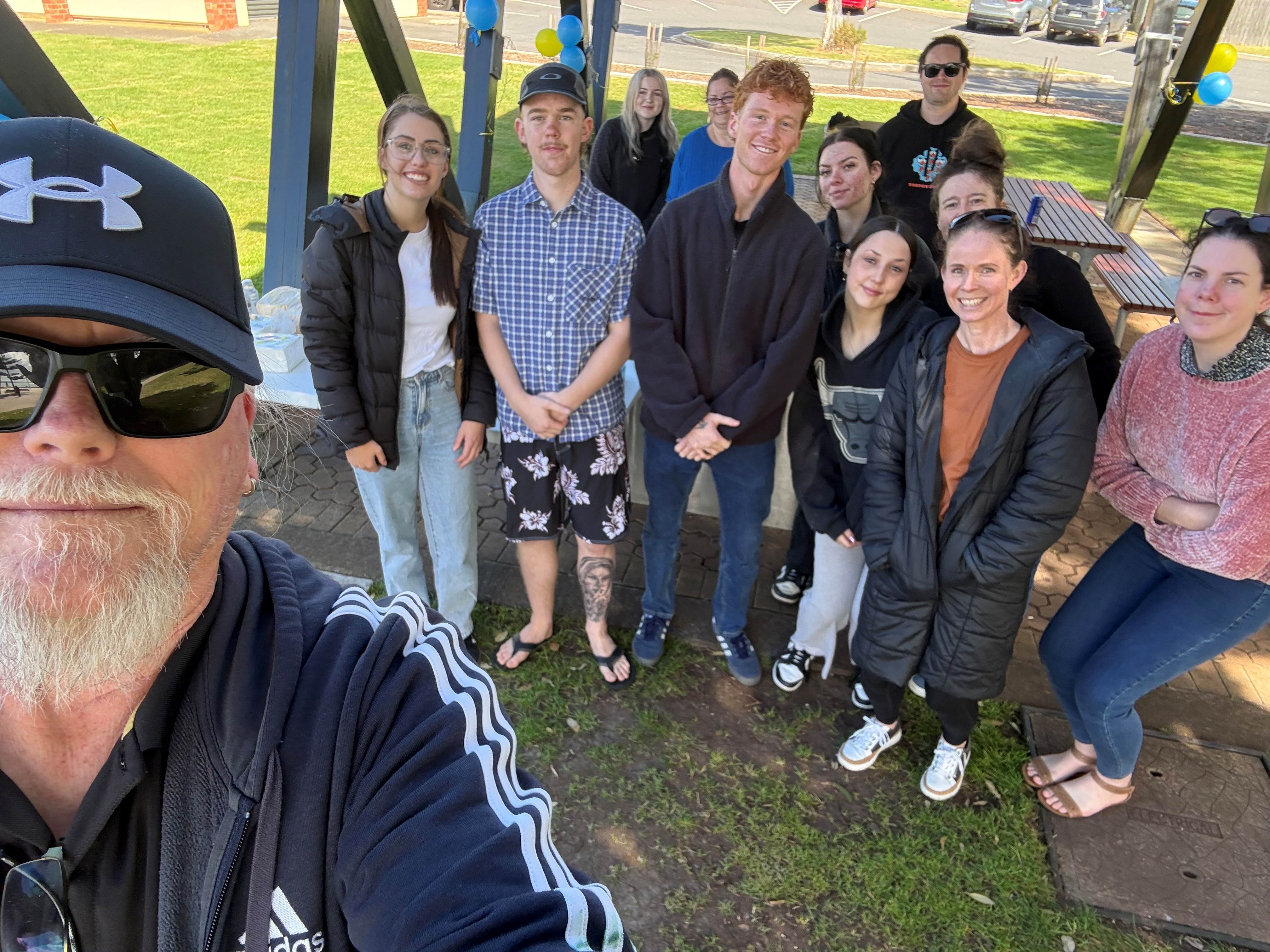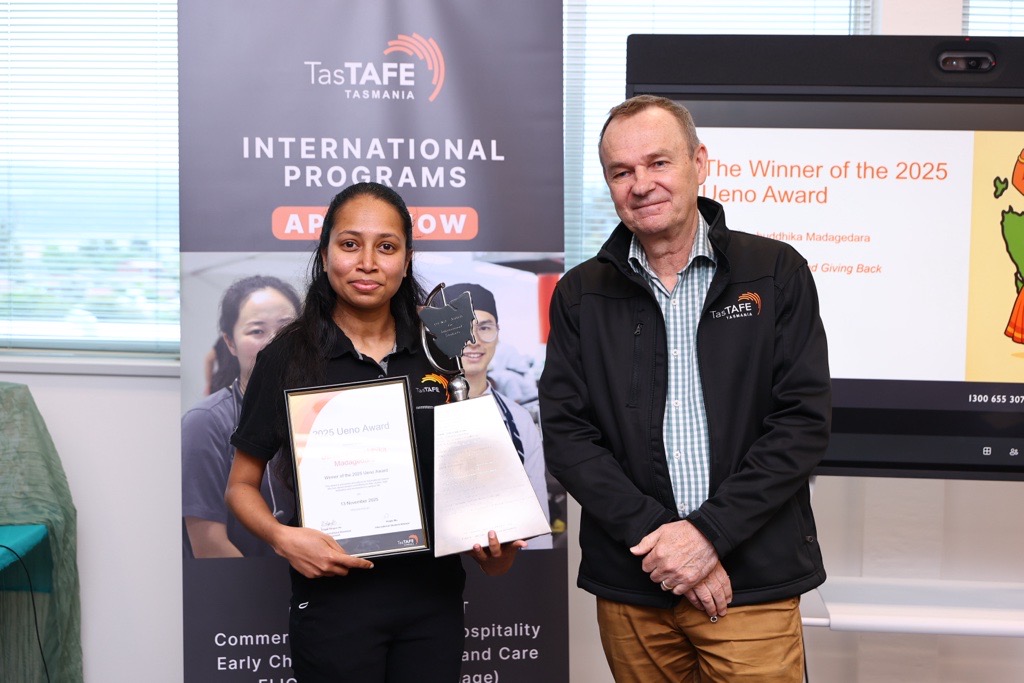Cyber Bootcamp challenges technology students
Published on: 18 Jul 2025
re_BOOTCMP: flipping the script on hacking
A cyber program designed to educate teenagers about the crucial online boundaries that separate cyber champions from cybercriminals was held at TasTAFE’s Cyber Innovation Training Hub in Hobart in June.
Thirty talented Tasmanian technology students took a deep dive into the world of ethical hacking during the one-day program hosted by the Australian Federal Police (AFP), with support from TasTAFE, the Tasmanian Government’s Digital Careers service, and Tasmania Police.
The one-day program ‘re_B00TCMP’ aims to ‘flip the script’ on hacking by transforming young people’s skills and passion for technology into ethical, lawful and impactful career opportunities in IT, cybersecurity and law enforcement.
The program featured interactive cyber challenges, expert-led discussions on ethical and non-ethical hacking, engagement from industry experts, technical analysts, and mentors, and insights into future career and study pathways into cyber security.
Students also competed in a Capture the Flag competition where they solved a series of puzzles and challenges that mimic real-world cyber offences, from cracking codes and finding hidden messages to spotting vulnerabilities and thinking like a hacker.
Recognising the crucial role of a positive support network, parents, carers, and teachers joined a parallel program that offered practical guidance on how to stay engaged with young people’s online activities and support the ethical use of their digital skills.

Thirty talented Tasmanian technology students attended the one-day course held in Hobart and were offered career and study pathways into cyber security.
AFP Commander Graeme Marshall said the program reflected a growing need to educate young people about the lawful use of technology.
“re_B00TCMP is an opportunity to find highly talented young people and expose them to career opportunities that exist when they use their skills within the boundaries of the law, such as cybercrime investigations and the cyber security industry.”
TasTAFE Interim-CEO Will McShane said re_B00TCMP program participants were introduced to a range of study options, including TasTAFE’s cyber career outreach program for year 11 and 12 students.
“From entry-level training to more advanced training options, and pathways to university, TasTAFE’s Certificate III, Certificate IV, and Diploma of Information Technology courses; Certificate IV in Cyber Security, and the Cyber Security Awareness Skills Set – are designed to create clear learning pathways that transition learners from basic skills to more specialised learning.”
Mr McShane also highlighted TasTAFE’s new Cyber Security Industry Expert Pilot Program that began earlier this year. The program brings cyber-security experts working in industry into TasTAFE as volunteers to engage with staff and learners through presentations, Q&A sessions, mentoring and co-delivery.
Mapped into a structured schedule, these expert sessions create meaningful engagement between industry and TasTAFE learners, supporting workforce readiness in cyber security and ICT.

Cracking codes, finding hidden messages and spotting vulnerabilities: participants learnt how to harness their digital skills for ethical purposes.

re_B00TCMP mentors monitoring a capture the flag exercise at TasTAFE’s Cyber Innovation Training Hub in Hobart.




